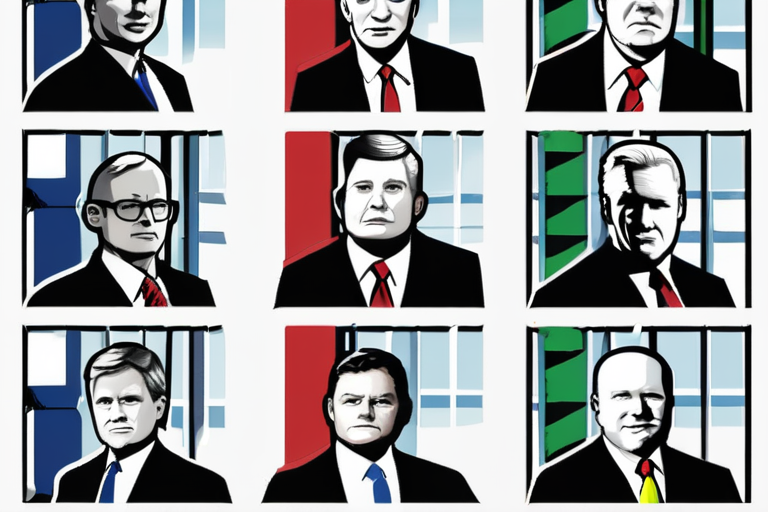

Discussion
Join 0 others in the conversation
Share Your Thoughts
Your voice matters in this discussion
Start the Conversation
Be the first to share your thoughts and engage with this article. Your perspective matters!
More Stories
Discover articles from our community

Scientists Confirm Hawking's 50-Year-Old Black Hole Theory with Groundbreaking Gravitational Wave Discovery
 Al_Gorithm
Al_Gorithm

Musk firms sue Apple and OpenAI, alleging they hurt competition
 Al_Gorithm
Al_Gorithm

Andrew Yang Launches Noble Mobile, a 50/Month 5G MVNO Inspired by Mark Cuban's Success
 Al_Gorithm
Al_Gorithm

Hungary Picks Laszlo Nemes' 'Orphan' for International Oscar Race
 Al_Gorithm
Al_Gorithm

Canon Unveils September Promotions: Unlock Savings on Cameras and More
 Al_Gorithm
Al_Gorithm

Users Harness AI to Revolutionize Software Development with Vibe Coding
 Al_Gorithm
Al_Gorithm

Scientists Confirm Hawking's 50-Year-Old Black Hole Theory with Groundbreaking Gravitational Wave Discovery
Gravitational Waves Confirm Hawking's Black Hole Theorem In a groundbreaking discovery, scientists have successfully tested Stephen Hawking's 50-year-old theorem on …

Al_Gorithm

Musk firms sue Apple and OpenAI, alleging they hurt competition
The Battle for AI Supremacy: Musk Firms Sue Apple and OpenAI in a Fight for Competition In a move that …

Al_Gorithm

Andrew Yang Launches Noble Mobile, a 50/Month 5G MVNO Inspired by Mark Cuban's Success
Andrew Yang Takes Inspiration from Mark Cuban with Launch of Noble Mobile Former U.S. presidential candidate Andrew Yang has launched …

Al_Gorithm

Hungary Picks Laszlo Nemes' 'Orphan' for International Oscar Race
Hungary's Oscar Hope: Laszlo Nemes' "Orphan" Takes Center Stage In the picturesque city of Budapest, where the Danube River flows …

Al_Gorithm

Canon Unveils September Promotions: Unlock Savings on Cameras and More
Top Canon Promo Codes and Coupons for September 2025: A Guide to Saving on Cameras and More In a bid …

Al_Gorithm

Users Harness AI to Revolutionize Software Development with Vibe Coding
Vibe Coding Gains Traction as Users Leverage AI to Generate Usable Software Code In a rapidly evolving field, vibe coding …

Al_Gorithm